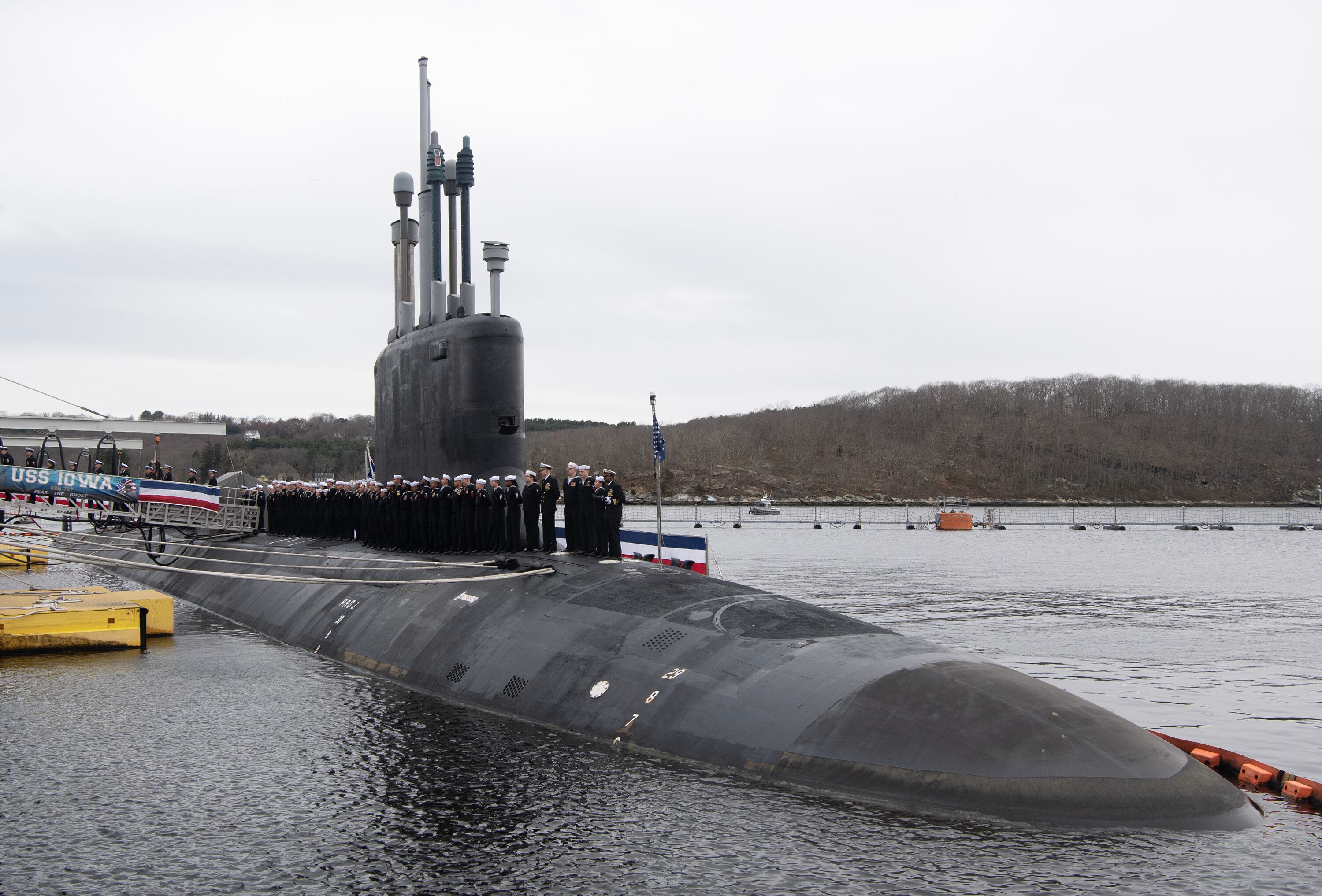Navy cannibalizing materiel for spare parts, watchdog says

The U.S. Navy is scavenging for spare parts from grounded materiel in order to address maintenance needs, a new government watchdog report found.
The problem arises from gaps in the Defense Department’s data rights for weapon systems that force Navy maintainers to rely on vendors for parts, which in turn can balloon maintenance timelines.
In the event of these repair delays, the service maintains operational readiness by repurposing parts from its own aircraft and submarines.
The DOD doesn’t obtain the data rights and intellectual property (IP) from contractors and manufacturers it needs to adequately sustain the weapons systems those contractors produce, the U.S. Government Accountability Office found.
The department also fails to adequately manage the IP it does obtain, which includes engineering drawings and technical manuals, further inhibiting proper repairs, the report said. Program personnel did not complete comprehensive reviews of the data that they received in conjunction with the weapon systems.
The report singled out five major weapon systems with data right issues, including the F/A-18 fighter aircraft, F-35 fighter aircraft, Littoral Combat Ship, Stryker Combat Vehicle and Virginia-class Submarine.
Each program lacked the proper data rights to perform depot-level sustainment — maintenance that typically requires uniquely experienced personnel, according to the report. Programs also faced vendor lock, in which the lack of proper data or the rights to access the proper data forced them to rely on the contractor for help with weapon system sustainment.
But the programs have figured out ways to accomplish their goals in the face of maintenance delays, a lack of spare parts, and ballooning costs for sustainment upkeep.
RELATED
Maintainers for the F/A-18 told the GAO that years spent unsuccessfully attempting to obtain data rights for frequency cables from the prime contractor left them “cannibalizing grounded aircraft for the part.”
Since only the vendor can make the part the maintainers need in this instance, the timeline for repair is dictated by the vendor.
And though the workaround may address sustainment needs, it can lead to its own host of problems.
Ripping parts from grounded aircraft to plug holes in others can lead to an uptick in maintenance costs, workload, and aircraft availability, the report said.
Maintainers for the Virginia-class submarine said they were also forced to cannibalize parts from other submarines due to a reliance on contractors who own technical data rights for necessary components.
The DOD’s license rights to access IP, which is acquired through contracts and weapon system development, are stipulated in statutes and regulations.
But while statutes allow the DOD to access data for operation, maintenance, installation and training purposes, they do not encompass detailed manufacturing or process data.
This leads to miscommunication and or misunderstandings over contract terms and what type of data the DOD is getting, which affects the DOD’s ability to sustain those weapons systems.
The government and contractors may have different interpretations on what data is necessary for system maintenance, the report said.
DOD guidance advises that the department acquire data rights to ensure the systems are sustained, but the guidance focuses on the early stages of the “acquisition cycle” and not on systems that need to be maintained.

The GAO report notes that it’s hard for DOD program offices to accurately predict the entire catalogue of data rights they’ll need in the future for the sustainment of systems.
This can lead to acquiring more data than is necessary, which can skyrocket the cost of programs or scare contractors away from asks they feel are oversized.
On the other end, though, a stunted ask leads to problems with system sustainment later on.
The GAO recommended in its report that Congress stipulate how manufacturing data should be handled between contractors and the DOD.
The watchdog also recommended that the DOD “provide additional IP planning information for programs in sustainment” and revisit the effectiveness of the process in which data deliverables are assessed.
Riley Ceder is a reporter at Military Times, where he covers breaking news, criminal justice, investigations, and cyber. He previously worked as an investigative practicum student at The Washington Post, where he contributed to the Abused by the Badge investigation.
Read the full article here









